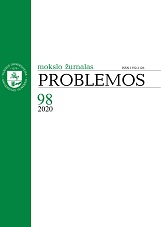Closed Theories, Falsificationism and Non-Cumulative Progress
Closed Theories, Falsificationism and Non-Cumulative Progress
Author(s): Svitlana Firsova, Herman Aksom, Tatyana BilorusSubject(s): Philosophy of Science
Published by: Vilniaus Universiteto Leidykla
Keywords: scientific progress; correspondence principle; closed theories; discovery; theory;
Summary/Abstract: It is argued that scientific progress occurs not with the cumulative growth of knowledge or when theories get closer to the truth but with discovering new domains and new theories that fit these domains. This horizontal view on the direction of scientific progress (in contrast to vertical, when we aim to get from here to the abstract and ephemeral truth) allows avoiding traditional objections posed by the incommensurability thesis and pessimistic induction, namely, that radical theory changes leave no room for progress. According to this perspective, the discovery of quantum mechanics as a new field of inquiry is a progress in itself, since this discovery had opened up a new distinctive domain of physics and a new theory that fits this domain. While some perspectives on scientific progress maintain that there is a need for correspondence between competing theories, we shift the emphasis from correspondence towards the discovery of new domains and new theories that apply to those domains. This approach allows overcoming the problem of theoretical discontinuity after scientific revolutions. Correspondence between theories is an important but not necessary condition for progress, while the falsifiability of theories as a means of demonstrating the boundaries of old theories and domains and beginnings of the new domains and theories (instead of being merely a means of refutation) is a necessary condition.
Journal: Problemos
- Issue Year: 2020
- Issue No: 98
- Page Range: 125-135
- Page Count: 11
- Language: English

